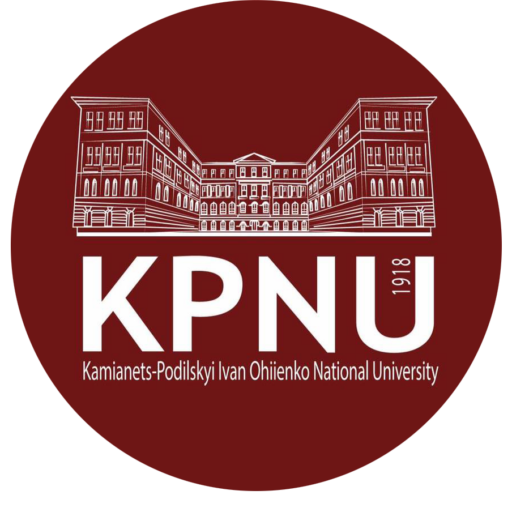Anna Dovgopol
Kamyanets-Podilsky Ivan Ohiienko National University
Scientific Supervisor: M.V. Matkovska, Senior Lecturer
THE SEMANTIC PECULIARITIES OF WOMAN’S FATE IN THE ENGLISH TRANSLATION OF “CATHERINE” BY TARAS SHEVCHENKO
Taras Shevchenko is one of the most famous Ukrainian writers. In Shevchenko’s heritage a lot of attention is devoted to the theme of women. The works of this topic include the poem “Catherine”, the social and everyday poem “Naymychka”. The poem “Catherine” occupies a special place among works about women. The author dedicated this work to Zhukovsky in memory of redemption from serfdom. “Catherine” was first printed in “Kobzar” in 1840.There are several gaps in the text marked with dots. Their origin is not known. The plot is a sequence of scenes connected by the author’s stories and lyrical digressions, which is a feature of a lyric-epic poem. The composition of the work is peculiar the narrator concisely explains the entire love story of the heroine, the birth of her son and her wanderings.
Our aim is to analyze the semantic peculiarities of woman’s fate in the English translation of “Catherine” by Taras Shevchenko.
Telling the story in the third person, the narrator imperceptibly switches to the position of the heroine and tells the story through Catherine’s eyes, in her voice in her uncharacteristically direct language. The poem begins with the author’s appeal to Ukrainian girls, e.g.,
My dark-browed beauties
Fall in love,
But love no Muscovite
For Moscow troopers aliens are,
And court in your despite
She is in love and unware
That evil has crept in [1, p. 14].
With these words, the author tries to warn not only the heroine of the work, but also everyone who will read the poem. This is an appeal not only to a girl, but also to all the Ukrainians. The author lived in the times when a part of the Ukrainian lands belonged to the Moscow Empire and he saw with his own eyes all the abuses of the ‘muscovites’ against the Ukrainian population. He saw them as real cruel liars. However reading further, we see that Catherine ignored any appeals.
Her father’s and her mother’s words
Young Katie shunned anon
A Moscow trooper gained her love
Her own heart urged her on [1, p. 15].
Catherine was in love very much, she ignored words, and she heard the warnings of other and thought only with her heart. However, her heart let her down people started talking bad about her, and she did not receive help and protection from her lover because he left her. He went on a campaign to Turkey. Catherine’s life changed. People in the village condemned her; the girl did not go outside during the day. She even went out at midnight to collect water. After sometime Catherine gave birth to a son, public condemnation becomes even worse. Catherine’s parents couldn’t stand human judgment and kicked their daughter out of the house:
O Katerina, luckless dear,
What woes your days vouchsafe!
Where under heaven will you go
With such a tiny waif? [1, p. 17].
From this passage you can see that even when the parents drive their daughter out they continue to love her. Her mother wants her to be happy. Catherine understands that she did something wrong, she apologizes. Probably her parents forgave her, but her father only says that God and people will forgive her. Catherine is forced to leave she goes to look for her lover. She constantly thinks whether the ‘muscovites’ will recognize her and her son. The heroine goes to the Moscow region with her son in her arms, spends the night on the road asks the people she meets for directions. Catherine thinks about the fact that her son will be treated badly because he is a bad boy. She decides to give him away and commit a suicide. One day Catherine meets the ‘muscovites’, her beloved Ivan is ahead:
Catherine turns to him but he starts to run away. The heroine tells him who she is and about her son. Catherine goes to the house where she was allowed to spend the night to take her son and show her to her lover. When she returns she sees that the ‘muscovite’ has run away. Maybe Ivan really forgot Catherine, and maybe he lied because he didn’t want to have a son. After that, the main character leaves her son on the road and goes to the pond herself and commits a suicide. Catherine’s son was taken away by kobzars he became the guide of a blind man. However the son and father met again. When the son was walking with a blind kobzar a carriage stopped near them. The lady called Ivasya and gave him some money and the gentleman looked and recognized his son. But the carriage moved on and the boy with kobzar left.
Analyzing the entire poem in general, it can be said that such an ending could have been avoided. All these events were caused by human condemnation, strange rules that people established at that time. A certain number of people invented rules and without taking into account the foresee other to do so. Catherine’s fate could have turned out differently if her family had not paid attention to society’s opinions but listened to Catherine’s opinions. Also in the image of Catherine you can see the image of Ukraine. Ukraine also suffered a lot because of representatives of the Moscow Empire. And the society that established and demands the implementation of the rules invented by them these are image of ‘muscovites’ who want to have influence on everyone and everything [2].
Summarizing, we can say that at the time of writing this poem, women’s rights were oppressed they could not live freely, make any choice. If someone tried to resist society, one was subjected to great oppression and condemnation.
REFERENCES
- Andrusyshen, C.H., Kirconnell, W. The Poetic works of Taras Shevchenko: The Kobzar. Toronto : University Toronto Press, 1964. 563 p.
- https://taras-sevchenko.storinka.org.
